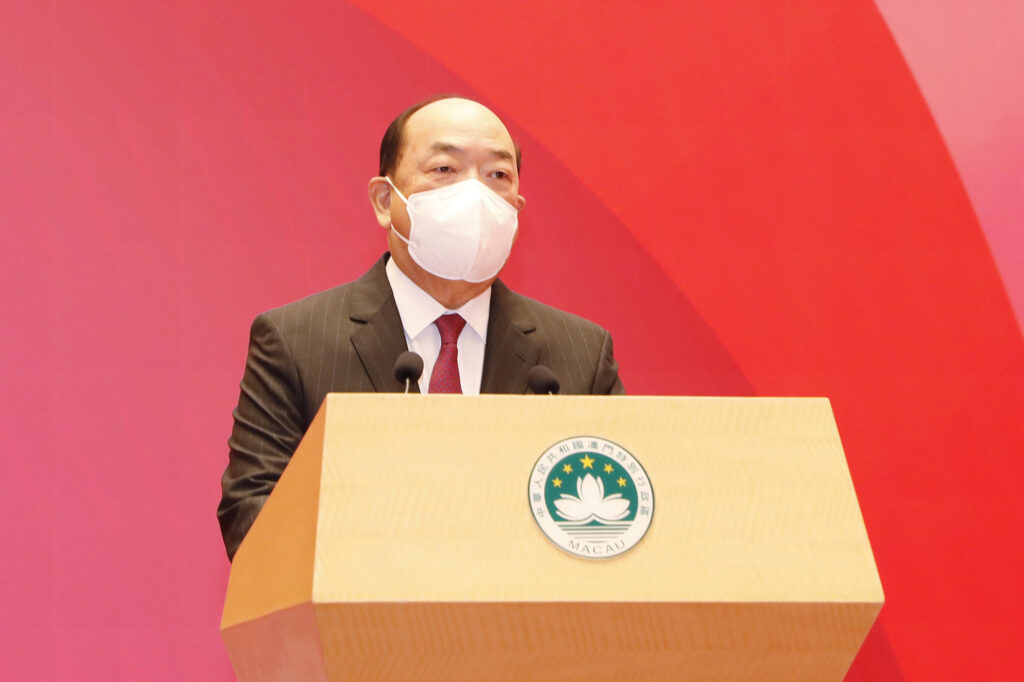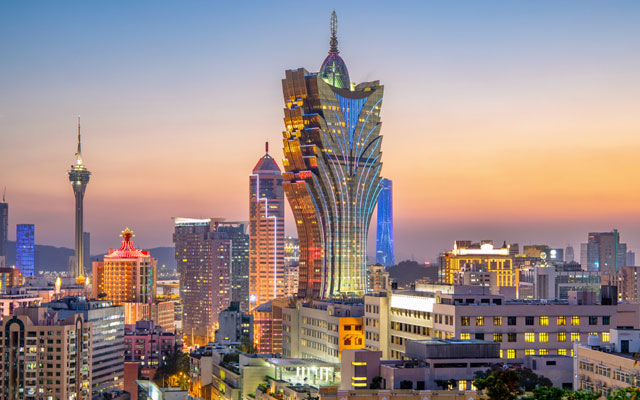Macau’s Chief Executive has said that the city’s residents “need our normal life back”, as officials say that the city has already reached the peak of the new COVID infection period. The reported peaking comes after an estimate by the city’s health bureau director that cases would peak between December 28th and the first week of January.
Earlier this week, authorities announced that at least one-sixth of the population had contracted COVID, with the figure likely much higher as the virus is rapidly spreading through the population.
The government’s decision this month to relax entry requirements and eliminate quarantine on arrival was met with expectations for a strong uptick in tourism, however the current state of Macau’s infections is likely to dampen any strong uptick in numbers throughout December and early January.

Speaking on the decision to re-open, the city’s Chief Executive noted that “After mainland China made its adjustments, we had to follow. After our residents went through this period of difficulties, we need our normal life back. Mainland China, all of the regions of the country, are going through this phase, it’s not only Macau.”
The University of Macau has also released the results of its study into the ‘latest situation of epidemic prevention’ in the territory, noting that ‘The resulting major changes have put a strain on the whole community and the healthcare system’.
The group estimates that ‘it is possible that COVID-19 infection will continue to affect people’s lives in the future although the impact is expected to gradually weaken’, indicating particular risk of infection amongst the elderly but a lower risk of re-infection for those who had previously caught the virus.
Regarding the reopening the Chief Executive noted that “it’s never the right time and all of us hope that nothing bad happens. We only adjusted the policies after the national policies were adjusted. Macau could not do this adjustment by itself.”
The spread of COVID throughout Macau has prompted hoarding and panic buying of medication and other goods, while over 40 percent of frontline healthcare workers have been infected and business across the city are shuttered due to infected personnel.
Casino operators have yet to release figures of how many staff have been affected and what impact the wave of infections will have on their fourth-quarter revenues, but numerous F&B outlets have been closed and casino operations have been limited to handle the reduction in personnel and separation of those infected from healthy staff.
Amongst the rise in cases, the government has further canceled the need for nucleic acid testing of at-risk groups or those with symptoms, urging instead for rapid antigen testing at home. The government last Friday dropped all requirements for home quarantine on arrivals, opting instead for a Yellow health code measure for five days. Casinos had previously required a Green health code for entry into casino floors, but authorities have hinted operators themselves can decide whether Yellow coded individuals can enter the premises.
Ferry operations to Hong Kong airport will also resume on December 30th, while the express bus between the SAR’s has also recommenced operations.
Mainland China has also announced that it would eliminate all quarantine on arrivals from overseas starting January 8th, allowing easier re-entry to the country. Also on January 8th, Chinese authorities will reportedly resume issuing passports and visas, as well as applications for mainland residents to visit Hong Kong for business and tourism. Macau had previously recommenced individual visas for tourism purposes in early November, however tour group applications have been stalled.











